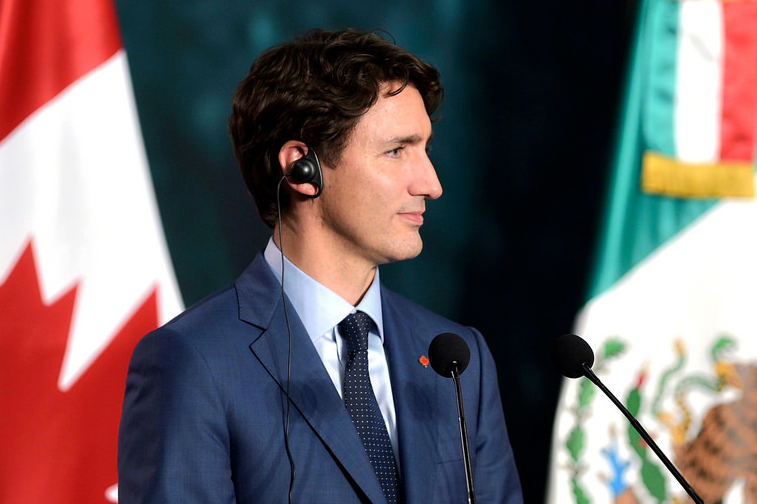Trudeau’s Mistake with WE Charity Partnership puts him in hot water, but can you blame him?

In response to COVID-19’s financial impact on post-secondary students, the Canadian federal government announced a partnership with WE Charity to administer the Canadian Student Service Grant (CSSG).
WE Charity, formerly Free the Children, is an international development charity and youth empowerment movement partnered with Me to We, a social enterprise that promotes leadership and volunteer trips for youth. This $912 million program is an initiative to help Prime Minister Justin Trudeau fulfill his promise of the $9 billion of financial aid to students during COVID-19.
Opposition parties raised flags against this initiative, claiming the partnership is an ethical violation and a conflict of interest after revealing Trudeau’s family connections to the non-profit organization. The opposition highlighted the connections of Trudeau’s wife, Sophie Grégoire Trudeau, as the host of the WE podcast, WE Well-Being.
Other family members were identified as a conflict of interest, such as Trudeau’s mother, Margaret Trudeau, and his brother, Alexandre Trudeau, who were paid hundreds of thousands of dollars to speak at WE Charity events.
Not only has the Trudeau family had these exchanges with WE Charity, but these exchanges have only occurred since Trudeau became Prime Minister in 2015. This gives Trudeau’s opposition reason to argue that these exchanges were to give the organization political leverage in cases such as these.
Prime Minister Trudeau claims that the program was taken to the cabinet before he was informed of this progression, arguing that he learned about such activities on May 8 versus May 5 when they occurred. However, as chair of the cabinet, Trudeau is under fire for not being knowledgeable of his cabinet’s activities and is put under further investigation of failing to recuse himself upon the announcement of this conflict of interest.
When questioned about the vetting process for this partnership, Trudeau’s cabinet says that WE is the only organization with a network capable of operating such a program. However, there was no competition for this partnership program. While the cabinet wanted to get financial aid to students as quickly as possible, they failed to consider the consequences of fast-tracking the process, leaving Trudeau to be scrutinized for not having the “basic facts” on the organization.
This controversy has triggered Trudeau’s third ethics investigation in three years. With more claims of his personal interests interfering in matters of public office, this will no doubt make it harder for Trudeau to recover his dwindling popularity and maintain leadership in the Liberal party.
To make things worse for the Liberal party, Finance Minister Bill Morneau was also identified with family ties to the organization. WE Charity covered the Morneau family’s travel and accommodation expenses during their 2017 visit to WE sites and employed Morneau’s daughter. With the Prime Minister and Finance Minister’s close relations to WE Charity, the opposition stamped this initiative as a nefarious act, serving the private interest of both individuals.
On August 17, Morneau announced his resignation as Finance Minister, justifying his decision by saying he was not interested in running again and, therefore, is not the appropriate person for this position. Despite priding themselves on transparency, Trudeau and Morneau have a history of butting heads and were not always on the same page on several past issues.
One could assume that the WE Charity controversy fueled Morneau’s resignation. While Morneau claims he was not pushed out of office, the public is often clueless about what goes on behind the closed doors of Parliament Hill. For example, during the SNC Lavalin scandal, both cabinet members, Jody Wilson-Raybould and Jane Philpott, were kicked out of the Liberal caucus due to dishonest behaviour, like secretly recording conversations.
Needless to say, Trudeau is in hot water with Parliament and the Liberal party, but are the allegations true?
Trudeau’s “scandal” may have had good intentions. Given the ever-changing situation of COVID-19, Trudeau could have been looking to use his personal network to help the Canadian government fulfill its promises in a timely manner. While there wasn’t proper screening for this partnership, Trudeau and his cabinet may have been trying to find a quick fix to the problem.
With the fall rapidly approaching, students are becoming concerned with their finances, but the Canadian government is not closer to meeting their goal. Trudeau may have had good intentions for the WE Charity partnership program, but with this backfire, we are left with no solutions for the fall.
Can you blame him? While “everyone makes mistakes” might not be a good enough excuse for a government, the current COVID-19 situation has overwhelmed every industry, its employees, and its leaders.
Being a political leader during a pandemic cannot be an easy job; how would Andrew Scheer, Yves-François Blanchet, Jagmeet Singh, Elizabeth May, or Maxime Bernier have handled this situation differently? This doesn’t mean our leaders are off the hook for their actions, but it’s also important to consider the overall context of any given situation.

